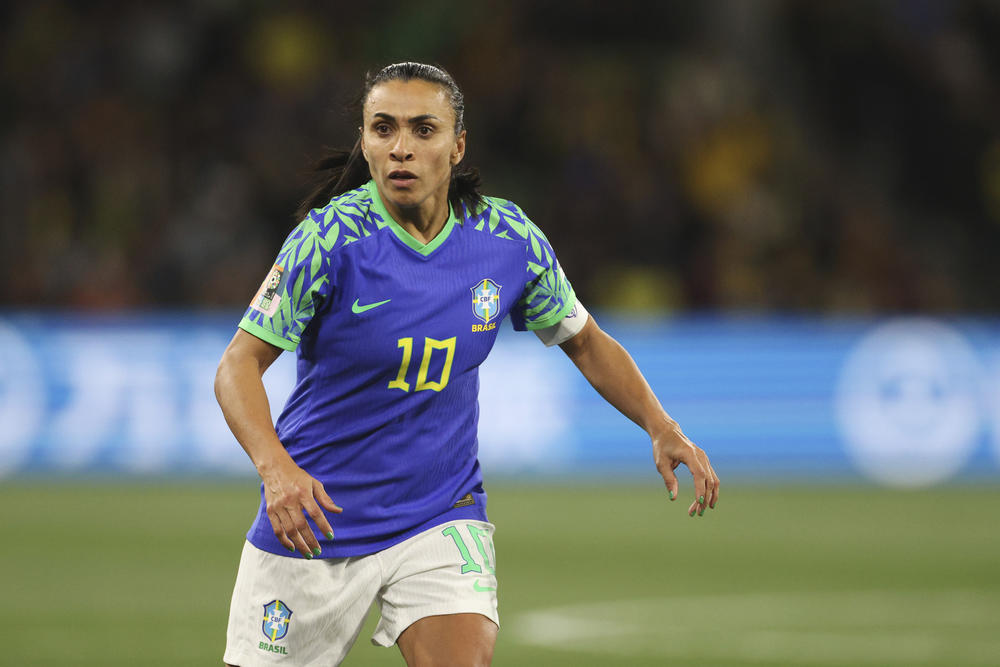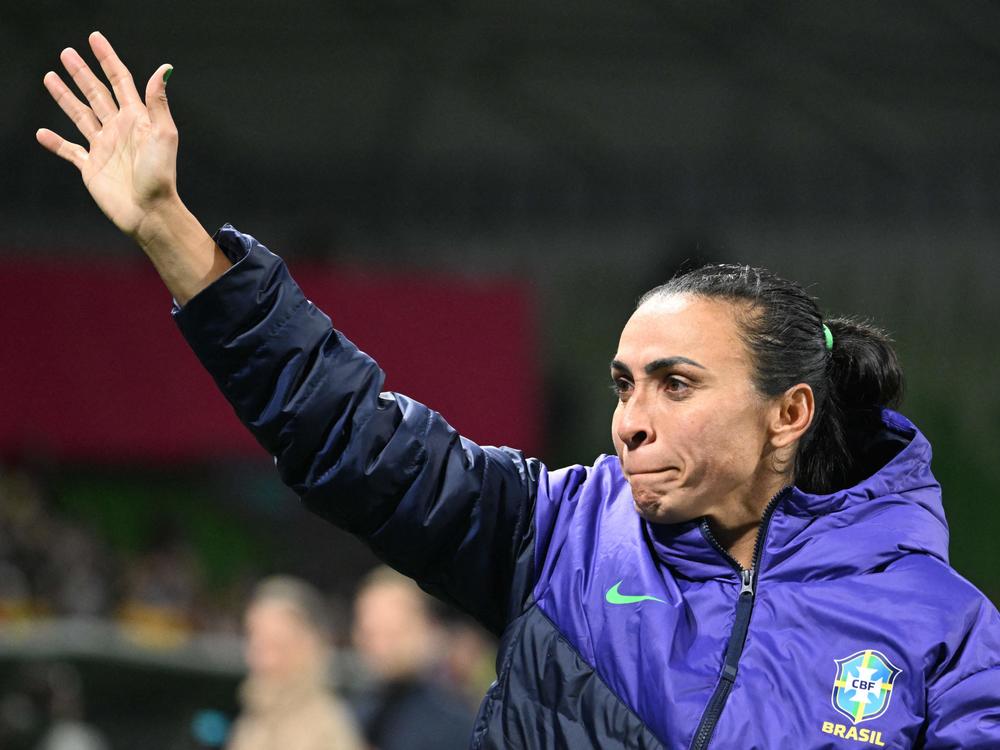Section Branding
Header Content
With Brazil's exit, Marta delivers an emotional farewell to the World Cup
Primary Content
For one of the biggest names in soccer, her reign on its biggest stage has come to an end.
Marta played in her first World Cup at age 17. Now, at 37, the Brazilian superstar has played in her sixth and last.
With a 0-0 draw against Jamaica on Wednesday, Brazil crashed out of the group stage at the Women's World Cup, its earliest elimination since 1995.
It was an outcome far from the team's high hopes when they arrived in Australia. Brazil had hoped to pull off the biggest win of all, bringing home the Cup for Marta, as Argentina did in December to win a last elusive trophy for Lionel Messi. But it was not to be, against a solid Jamaica team that's now headed to its first Round of 16.
And for Marta, Brazil's exit at this tournament marks the end of her spectacular international soccer career.
She holds the all-time scoring record, women or men, for World Cup goals – 17. A two-time Olympic silver medalist, she has been FIFA's World Player of the Year six times.
She scored in each of her previous World Cup tournaments, though not in this one. In Brazil's group stages matches, she came in off the bench in a win against Panama and a loss to France, before starting in the Jamaica match.
After the game, Marta gave a real mic drop of a speech, professing that even in her worst nightmares had she not dreamed of a World Cup like this.
"But it's just the beginning," she said, for the many talented younger players on Brazil's squad. "I'm done here, but they're still here."
"I want people in Brazil to continue to have the same enthusiasm they had when the World Cup started. To continue to support. Because things don't happen overnight."
"I'm very happy with all that has been happening in women's football in Brazil and in the world. Keep supporting," she said, tears glazing her eyes. "Because for them, it's just the beginning. For me, it's the end of the line now."
At the end of the match, Marta shared an embrace with Jamaica's Bunny Shaw, who put her hand over her heart and told Marta what she means to a generation. "I just told her that she's not just an inspiration for me, but for a lot of young girls in the Caribbean and around the world," Shaw said, according to The Associated Press.
Though she made clear that this would be her last World Cup, Marta isn't retiring from club soccer — she plays for the Orlando Pride in the NWSL.
Still, this moment is perhaps the finest for Marta to consider her legacy. In a press conference a day earlier, she reflected on how she and others had opened doors for women's equality.
"When I started playing, I didn't have an idol, a female idol. You guys didn't show any female games," she said in Portuguese, gesturing to the media. "How was I supposed to see other players? How I was I supposed to understand that I could arrive at a national team and become a reference?"
"Today we have our own references," she said, adding she is often stopped on the streets by parents who say their daughters want to be just like Marta. "This wouldn't have happened if we had stopped in the first obstacles that we faced. ... And it didn't start just with me, but with a lot of the women back then."
Twenty years ago, no one knew her name, she said. It was her first World Cup. This time, as she says farewell, everyone does.
Copyright 2023 NPR. To see more, visit https://www.npr.org.


